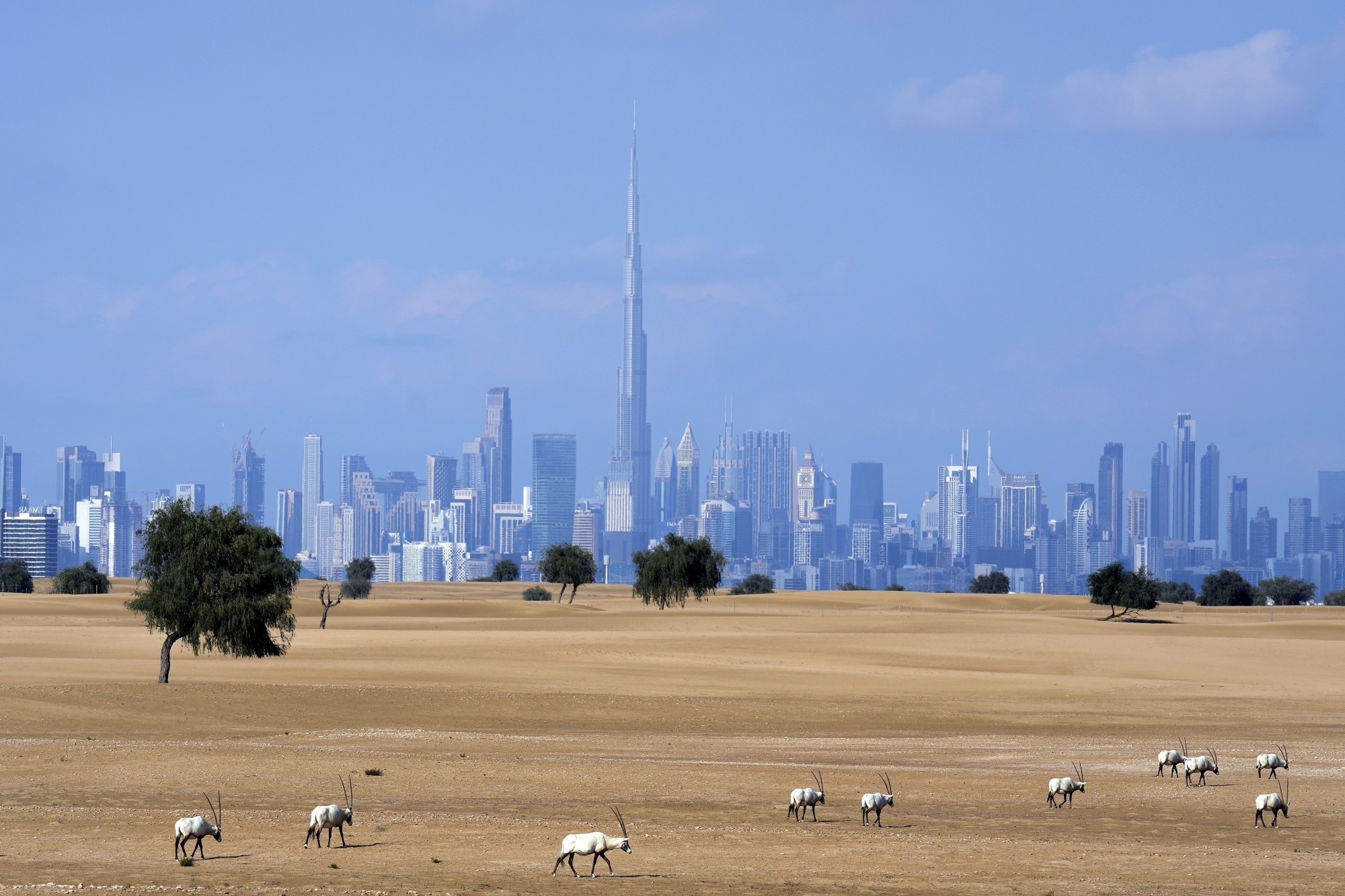
Cop28: where does China stand on coal and renewable energy ahead of the UN climate conference’s tough negotiations?
- The country is unlikely to commit to more than it has already when it comes to phasing out coal, a climate analyst says
- China will face pressure to step up its own renewable energy targets and help less developed nations make progress on theirs, another analyst says
At the 28th annual United Nations Climate Change Conference, starting on Thursday, negotiators from around the world will try to thrash out new global commitments to mitigate and adapt to climate change, one of the toughest challenges facing humanity.
“The world is witnessing a disturbing acceleration in the number, speed and scale of broken climate records,” the UN Environment Programme (UNEP) said in a November 20 report, where it added that 2023 had already seen 86 days where the global average temperature exceeded 1.5 degrees Celsius above pre-industrial levels.

This alone does not mean the world has already breached the Paris Agreement’s goal of containing global warming to 1.5 degrees, because that goal is based on a multi-decade average. But it does show the world is on a path to do so, the report said.
According to the World Meteorological Organization, the global multi-decade average temperature has already hit 1.2 degrees above the pre-industrial baseline as of January 2021.
In Hong Kong, the 10-year average of the number of hot nights per year, defined as nights where the temperature does not drop below 28 degrees, is set to rise by 50 per cent to 48 nights by the 2040s from 32 today, according to an interuniversity research team led by the Chinese University of Hong Kong.
If current policies continue, global warming will reach 3 degrees, according to the UNEP report. It can be brought down to 2 degrees if nations fulfil all their net zero emission pledges.
Can Cop28’s plan to triple renewable energy finally edge out fossil fuels?
Global greenhouse gas emissions grew by 1.2 per cent last year to a record 57.4 billion tonnes from 2021, the UNEP said.
Under current policies, the world must slash annual global emissions by 16 billion tonnes by 2030 if global warming is to be contained below 2 degrees. This rises to 24 billion tonnes, or 42 per cent of the 2021 level, if the temperature rise is to be kept at 1.5 degrees.
This is a daunting challenge, considering global governments’ plans for fossil fuel production in 2030 are more than double the level consistent with the Paris Agreement.
In the past year, only nine countries have submitted new or updated national reduction commitments, according to the UN. Together, the combined additional emission reduction amounted to a “negligible” 0.1 billion tonnes of carbon dioxide equivalent, it said.
Developing countries in previous UN global climate talks have insisted that developed nations should shoulder a bigger share of emissions mitigation, given they contributed a larger portion of emissions historically.
At COP28, activists urge leaders to address impact of climate change on women
China, which as the top emitter accounted for 30 per cent of energy-related global emissions last year, is responsible for 13 per cent of the historical emissions since the start of industrialisation in 1850. The United States accounts for 19 per cent of historical emissions, compared with 12 per cent last year.
Key success indicators for Cop28 include global agreements to be more aggressive with national greenhouse gas emissions targets for 2030 and 2035, to phase out fossil fuels, and to triple global renewable energy capacity by 2030, said Simon Retallack, director of Latin America and the net zero intelligence unit at London-based business advisory Carbon Trust.
But negotiations will be difficult, according to HSBC analysts, who noted in a report released on Tuesday that inflation and economic challenges in the European Union and domestic political sensitivities in the US may hinder progress.
Proposals from some developed nations to phase out coal will be hard to push through given that China, India and Indonesia are highly reliant on coal-fired power despite rapid growth in renewable energy capacity, the report said.
China will be reluctant to commit to more than it has already, said Lauri Myllyvirta, lead analyst at Helsinki-based climate think tank Centre for Research on Energy and Clean Air.

“Very clearly, the [Chinese] leadership still wants to leave more space for its economic policies, especially since the economy is currently the overwhelming focus,” he said.
“This would require more power transmission [infrastructure] and incentives for state-backed power firms to trade with each other,” he said.
A global pledge to triple renewable energy capacity by 2030 is more likely to be achieved at Cop28, analysts said. Leaders from the G20 nations, which produce 80 per cent of global economic output, already signed up to this proposal in a September meeting in New Delhi.
Pope Francis pulls out of Cop28 trip because of health issues
China will face pressure to both step up its own renewable energy targets and help less developed nations on their energy transition through technology transfer and project financing, said John Sayer, executive director at Deloitte CarbonCare Asia.
“It would not be surprising if China used the occasion of COP to revise upwards its own target of 1,200 gigawatts of wind and solar capacity by the year 2030, which it is on track to surpass well before then,” he said.
The world will also be looking to China to signal an intention to put a price on carbon emissions in domestic goods and imports, said Tim Buckley, director at Australia-based think tank Climate Energy Finance.
“This would elevate China’s global leadership in all zero-emissions industries of the future and would signal the need for a clear international price on carbon emissions in global trade,” he said.
The “Cop” moniker derives from the conference’s function as a “conference of parties” to the UN Framework Convention on Climate Change.


